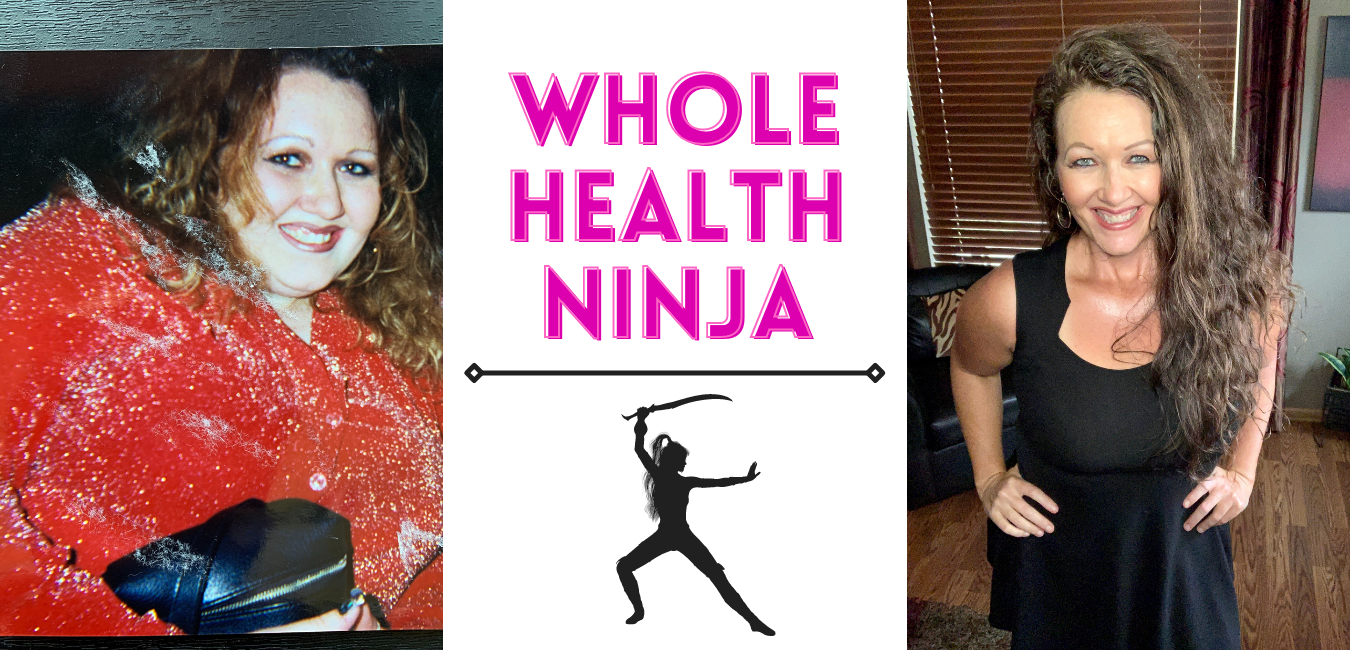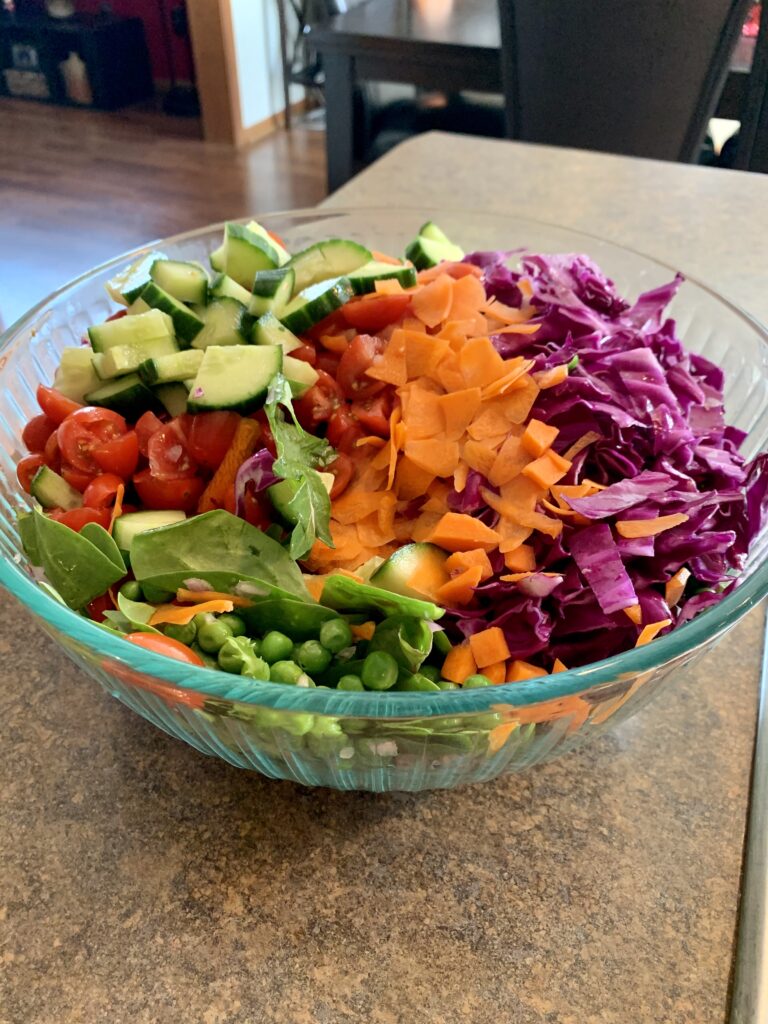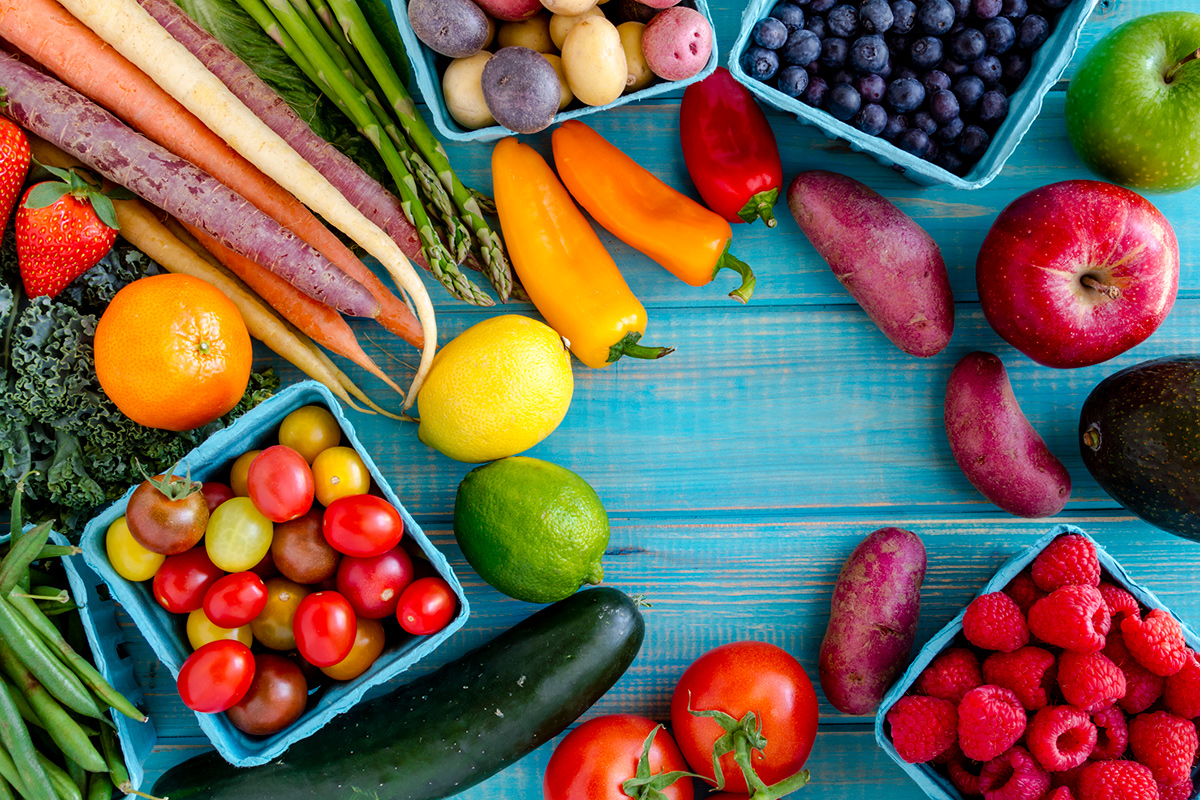Collagen supplements have become extremely popular, because they promise to help reduce wrinkles, promote weight loss, improve gut health and strengthen bones, joints and tendons. In other words, collagen helps us look and feel younger.
But here’s the thing…
There’s little-to-no evidence that taking collagen supplements actually increases the amount of collagen in your body. Plus, taking a collagen supplement is worthless if you aren’t consuming enough vitamin C to synthesize it.
It’s also important to know that the typical collagen supplement is made from cow hides or comes in the form of bone broth , which is made from boiling dead animal bones and cartilage. So if you follow a plant-based diet or are just grossed out by what those supplements are made of, how can you supplement collagen?
I’m happy to tell you there are plenty of plant-based foods that help your body make its own collagen without taking a supplement!
PLANT-BASED SOURCES OF COLLAGEN-BUILDING AMINO ACIDS
First, it’s important to know that collagen supplements contain a concentrated source of the key amino acids your body needs to build new collagen – glycine, lysine and proline.
Below is a list of plant foods that are rich in these amino acids:
Glycine Sources:
- Apples
- Bananas
- Beans & Lentils
- Beets
- Cabbage
- Carrots
- Cauliflower
- Cucumber
- Kale
- Kiwi
- *Organic Soy – Tempeh, Edamame, Tofu, Natto & Miso (see the *NOTE below)
- Pistachios
- Pumpkin
- Pumpkin Seeds
- Sesame Seeds / Tahini
- Spinach
- Sunflower Seeds
Lysine Sources:
- Almonds
- Beans & Lentils
- Cashews
- Chia Seeds
- *Organic Soy – Tempeh, Edamame, Tofu, Natto & Miso (see the *NOTE below)
- Pistachios
- Potatoes
- Pumpkin Seeds
- Spinach
- Quinoa
Proline Sources:
- Alfalfa Sprouts
- Asparagus
- Beans
- Buckwheat (NOTE: This a gluten-free grain despite the word “wheat” being in its name.)
- Cabbage
- Cucumber
- Chives
- Mushrooms
- *Organic Soy – Tempeh, Edamame, Tofu, Natto & Miso (see the *NOTE below)
- Watercress
- White Mustard Seeds
*NOTE: Whenever possible, please buy organic food to ensure it wasn’t sprayed with toxic synthetic chemicals like pesticides and that it hasn’t been genetically modified. Soy is one of the most heavily sprayed and most commonly modified crops. That’s why it is imperative to buy organically-grown soy to avoid genetic modification and heavy chemical spraying.
UNDERSTANDING THE VITAMIN C CONNECTION
Now that you have a nice list of plant-based foods with the amino acids your body needs to build new collagen, it’s critical to understand that your body needs a sufficient amount of vitamin C to work with these amino acids to make new collagen.
It doesn’t matter how many amino acids you take in if you’re not getting enough vitamin C to generate collagen synthesis. Simply put, if you don’t have enough vitamin C…your collagen production line shuts down. And because your body is unable to produce vitamin C on its own, you must consume it.
Below is a list of food sources that are rich in vitamin C:
Vitamin C Sources:
- Camu Camu (the highest food source of vitamin C)
- Amla Berry
- Bell Peppers (yellow and red are highest in vitamin C)
- Broccoli
- Brussels Sprouts
- Grapefruit
- Guava
- Kale
- Kiwi
- Lemon
- Oranges
- Papaya
- Pineapples
- Snow Peas
- Strawberries
- Tomatoes
GARLIC FOR THE WIN!
Garlic is a secret weapon for repairing damaged collagen due to its lipoic acid and taurine content. Garlic is also a good source of sulfur, which is a major player in collagen synthesis.
I recommend adding garlic to as many meals as possible each day. While whole organic garlic cloves are the best option, sprinkling organic garlic powder into dishes whenever possible is also advantageous.
I make a point to eat two whole garlic cloves a day. I simply chop them up and add them raw to salads, soups, dressings, gluten-free avocado toast, quinoa, baked potatoes and bean-based dishes. I also sprinkle organic garlic powder on any dish that it pairs well with (it tastes amazing with sweet potatoes!).
PROTECT YOUR COLLAGEN FROM GETTING DAMAGED IN THE FIRST PLACE
Antioxidants protect the collagen in your body from getting damaged in the first place.
To load up on antioxidants, simply think about eating the colors of the rainbow each day:
- RED: Beets, peppers, apples, radishes and red berries like raspberries and strawberries.
- ORANGE: Carrots, pumpkin, squash, oranges, peppers and sweet potatoes.
- GREEN: Brussels sprouts, broccoli, zucchini, cucumber, kiwi and dark leafy greens like spinach, kale, collard greens, Swiss chard, mustard greens, turnip greens, etc.
- PURPLE / BLUE: Cabbage, grapes, eggplant and berries (like blueberries, blackberries and acai berries).
- YELLOW / WHITE: Cabbage, bananas, onions, potatoes and cauliflower.
You can get loads of these foods into a nice big salad!
Cheers to fighting the signs of aging, improving your gut health and lowering inflammation using the power of collagen-boosting plant foods!
With love and gratitude,
Kandi
DISCLOSURE: Any links above may be affiliate links, which means I earn a small commission – at no additional cost to you – if you purchase a product through them. (Click here to view my full Disclaimer & Disclosure statement.) This helps me continue providing FREE information to help you become a Fit Life Ninja. Thanks for your support!


